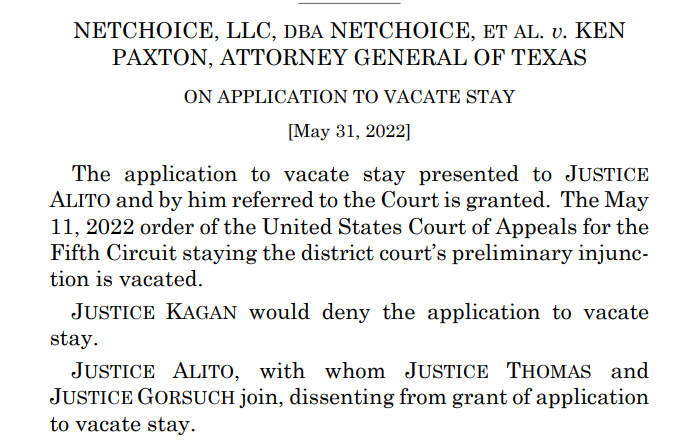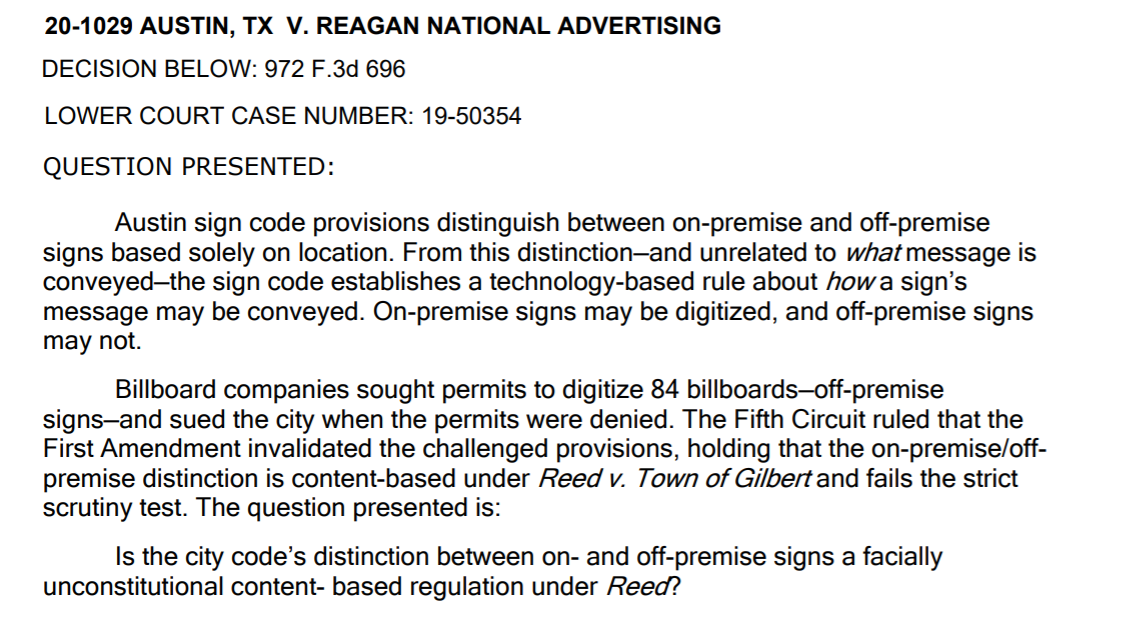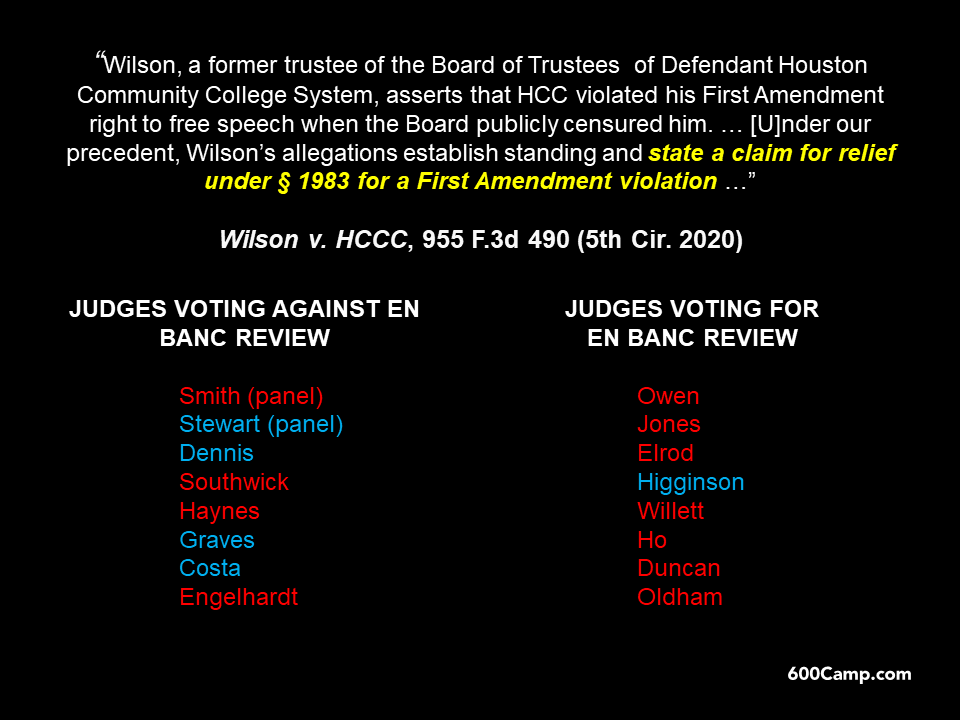The Fifth Circuit’s recent en banc vote in Book People, Inc. v. Wong, a successful constitutional challenge to a prior-restraintish law involving the content of books in school libraries, is summarized in the below chart:
Category Archives: First Amendment
In an opinion reversing the denial of a TCPA motion to dismiss, the Texas Supreme Court made a helpful observation for the legal blogging community:
[A]nyone who appreciates lawyerly precision has probably read plenty of news stories about legal affairs that gloss over lawyerly distinctions or contain inadvertent mischaracterizations of legal or procedural concepts. These journalistic imprecisions are not to be applauded, and they certainly can mislead the average reader in some cases. But errors of law by those reporting on the law are not automatically actionable as defamation.
Polk County Publ. Co. v. Coleman, No. 22-0103 (Tex. Feb. 16, 2024).
In Book People, Inc. v. Wong, the Fifth Circuit reviewed the constitutionality of the Texas “READER” law, which “requires school book vendors who want to do business with Texas public schools to issue sexual-content ratings for all library materials they have ever sold (or will sell), flagging any materials deemed to be ‘sexually explicit’ or ‘sexually relevant’ based on the materials’ depictions of or references to sex.”
The Court held that the law violated the First Amendment, in that the ratings required by the law were not government speech, and fell within no exception to the rule against “compelled speech”:
- They did not come within the “government operations” exception because they “go[] beyond a mere disclosure of demographic or similar factual information.”
- Similarly, they were not a permissible commercial-speech regulation because “[b]alancing a myriad of factors that depend on community standards is anything but the mere disclosure of factual information.
No. 23-50668 (Jan. 17, 2024).
 After resolving threshold matters about justiciability, the Fifth Circuit rejected facial First Amendment challenges to Texas laws about the use of drones in Nat’l Press Photographers Ass’n v. McCraw, as follows:
After resolving threshold matters about justiciability, the Fifth Circuit rejected facial First Amendment challenges to Texas laws about the use of drones in Nat’l Press Photographers Ass’n v. McCraw, as follows:
- “No-Fly” provisions. “Plaintiffs’ First Amendment challenge to the No-Fly provisions falters because ‘only conduct that is “inherently expressive” is entitled to First Amendment protection.’ The operation of a drone is not inherently expressive—nor is it expressive to fly a drone 400 feet over a prison, sports venue, or critical infrastructure facility. And nothing in the No-Fly provisions has anything to do with speech or expression. These are flight restrictions, not speech restrictions.” (footnotes omitted, emphasis in original).
- “Surveillance” provisions (which prohibit the use of a drone to capture images “with the intent to conduct surveillance ….”). “Though most drone operators harbor no harmful intent, drones have singular potential to help individuals invade the privacy rights of others because they are small, silent, and able to capture images from angles and altitudes no ordinary photographer, snoop, or voyeur would be able to reach. … The law is also tailored to bar only surveillance
that could not be achieved through ordinary means …. We therefore conclude that the law survives intermediate scrutiny.”
No. 22-50337 (Oct. 23, 2023). The opinion was later revised.
 The latest installment in the “Bar Wars” litigation about speech by compulsory bar associations is Boudreaux v. Louisiana State Bar Ass’n, holding:
The latest installment in the “Bar Wars” litigation about speech by compulsory bar associations is Boudreaux v. Louisiana State Bar Ass’n, holding:
[T]he majority of speech Boudreaux objects to is germane. Speech can be germane even if it is “controversial and ideological.” But the LSBA crossed the line when it promoted purely informational articles absent any tailoring to the legal profession. That includes the LSBA’s tweet about student-loan reform and its promotion of the History.com article through a pride flag icon. Advancing generic political and social messages in those ways violates the First Amendment rights of the LSBA’s dissenting members.
No. 22-30564 (Nov. 13, 2023).
 The Fifth Circuit reversed the district court and allowed the City of Dallas’s ordinance requiring sexually oriented businesses to shut down by 2 AM, summarizing: “”Under longstanding Supreme Court precedent, the Ordinance is likely constitutional. The City’s evidence reasonably showed a link between SOBs’ late-night operations and an increase in “noxious side effects,” such as crime. The Ordinance also left the SOBs ample opportunity to purvey their speech at other times of the day and night.” Assoc. of Club Executives v. City of Dallas, No. 22-10556 (Oct. 12, 2023).
The Fifth Circuit reversed the district court and allowed the City of Dallas’s ordinance requiring sexually oriented businesses to shut down by 2 AM, summarizing: “”Under longstanding Supreme Court precedent, the Ordinance is likely constitutional. The City’s evidence reasonably showed a link between SOBs’ late-night operations and an increase in “noxious side effects,” such as crime. The Ordinance also left the SOBs ample opportunity to purvey their speech at other times of the day and night.” Assoc. of Club Executives v. City of Dallas, No. 22-10556 (Oct. 12, 2023).
 The Financial Times sought access to a sealed sentencing record in a high-profile criminal case about international bribery. In United States v. Ahsani, No. 23-20097, the Fifth Circuit held: “[W]e acknowledge numerous procedural irregularities in the district court, we ultimately affirm its denial of the intervenors’ motion to unseal.”
The Financial Times sought access to a sealed sentencing record in a high-profile criminal case about international bribery. In United States v. Ahsani, No. 23-20097, the Fifth Circuit held: “[W]e acknowledge numerous procedural irregularities in the district court, we ultimately affirm its denial of the intervenors’ motion to unseal.”
Two issues in particular were presented.
- Notice and an opportunity to be heard before sealing. The Fifth Circuit found material errors by the district court in how it handled sealing of the sentencing proceeding. Unfortunately for the Times, those errors did not require unsealing of the hearing as a remedy, and other aspects of the record justified its continued sealing.
- Legal error. After reviewing the requirements of the common-law and First Amendment rights of public access to court records, the Court held: “[T]he order denying intervenors’ motion to unseal included sparse detail when read in isolation, but it did contain specific, substantive findings sufficient to permit our review, given the facts. Although its articulation of the governing legal principles could have been more detailed, the court applied the proper legal standards. … The interests it identified are compelling and implicated by the sealed information. Those interests may abate in the future, but for now, they remain salient enough to justify the sealing of the documents at issue, including the transcript of the sealed sentencing proceeding. Finally, the court properly considered the alternative of redaction and permissibly found that it was inappropriate.”
 Austin’s regulation of large freeway billboards returned to the Fifth Circuit after an earlier opinion was reversed by the Supreme Court; on remand, a 2-1 majority cut to the chase and concluded: “Municipalities have traditionally been given wide discretion in the domain of sign regulations. Austin is entitled to that latitude. AFFIRMED.” A dissent read the signs given by the Supreme Court differently. Reagan National Adv. of Austin, Inc. v. City of Austin, No. 19-50354 (March 30, 2023).
Austin’s regulation of large freeway billboards returned to the Fifth Circuit after an earlier opinion was reversed by the Supreme Court; on remand, a 2-1 majority cut to the chase and concluded: “Municipalities have traditionally been given wide discretion in the domain of sign regulations. Austin is entitled to that latitude. AFFIRMED.” A dissent read the signs given by the Supreme Court differently. Reagan National Adv. of Austin, Inc. v. City of Austin, No. 19-50354 (March 30, 2023).
 After a 5-4 order from the Supreme Court that allowed a stay of Texas’ social-media law to remain in effect, a 2-1 panel opinion rejected a First Amendment challenge to that law in NetChoice LLC v. Paxton, No. 21-51178 (Sept. 16, 2022) (Judge Oldham writing the majority opinion, largely joined by Judge Jones who wrote her own concurrence, with Judge Southwick dissenting). The dissent aptly observed: “The Supreme Court will, as always, have the final word.”
After a 5-4 order from the Supreme Court that allowed a stay of Texas’ social-media law to remain in effect, a 2-1 panel opinion rejected a First Amendment challenge to that law in NetChoice LLC v. Paxton, No. 21-51178 (Sept. 16, 2022) (Judge Oldham writing the majority opinion, largely joined by Judge Jones who wrote her own concurrence, with Judge Southwick dissenting). The dissent aptly observed: “The Supreme Court will, as always, have the final word.”
“It should be obvious to any reasonable police officer that locking up a journalist for asking a question violates the First Amendment. Indeed, even Captain Lorenzo, the stubborn police chief in Die Hard 2, acknowledged: ‘Now personally, I’d like to lock every [expletive] reporter out of the airport. But then they’d just pull that “freedom of speech” [expletive] on us and the ACLU would be all over us.” Die Hard 2 (1990). Captain Lorenzo understood this. The officers in Laredo should have, too. Cf. Dickerson v. United States, 530 U.S. 428, 443 (2000) (‘Miranda has become embedded in routine police practice to the point where the warnings have become part of our national culture.’). The complaint here alleges an obvious violation of the First Amendment. The district court erred in holding otherwise.”
Villarreal v. City of Laredo, No. 20-40359 (Nov. 1, 2021).
The Supreme Court will review Reagan National Advertising v. City of Austin, 972 F.3d 696 (5th Cir. 2020). The court’s summary of the issue presented is below, and here is my discussion of the case on the Coale Mind podcast —
Applying Keller v. State Bar of California, 491 U.S. 1 (1990), the Fifth Circuit concluded that certain activities by the State Bar of Texas were not “germane” to the Bar’s accepted purpose, and thus held that their funding with bar dues violated the First Amendment.
In sum, the Bar is engaged in non-germane activities, so compelling the plaintiffs to join it violates their First Amendment rights. There are multiple other constitutional options: The Bar can cease engaging in nongermane activities; Texas can directly regulate the legal profession and create a voluntary bar association, like New York’s; or Texas can adopt a hybrid system, like California’s. But it may not continue mandating membership in the Bar as currently structured or engaging in its current activities.
The Court acknowledged the “weakened foundations” of Keller after the union-dues case of Janus v. Am. Fed. of State, County, & Municipal Employees, 138 S. Ct. 2448 (2018), but concluded that it still framed the relevant issues in the context of a mandatory bar association. McDonald v. Longley, No. 20-50448 (July 2, 2021). The Texas Lawbook has written on the opinion. (The companion case of Boudreaux v. Louisiana State Bar Ass’n, No. 20-30086 (July 2, 2021), reversed a standing-based dismissal to a similar challenge to the activities of Louisiana’s state bar.)
The difficult First Amendment case of Wilson v. Harris County Community College System, 955 F.3d 490 (5th Cir. 2020), produced a panel opinion that allowed an elected member of a community-college board to bring a claim about alleged retaliation for his exercise of First Amendment rights, followed by an 8-8 tie on the question of en banc review. The Supreme Court has now granted review of this fundamental issue about the relationship between elected officials’ rights and the interests of the institutions they serve: 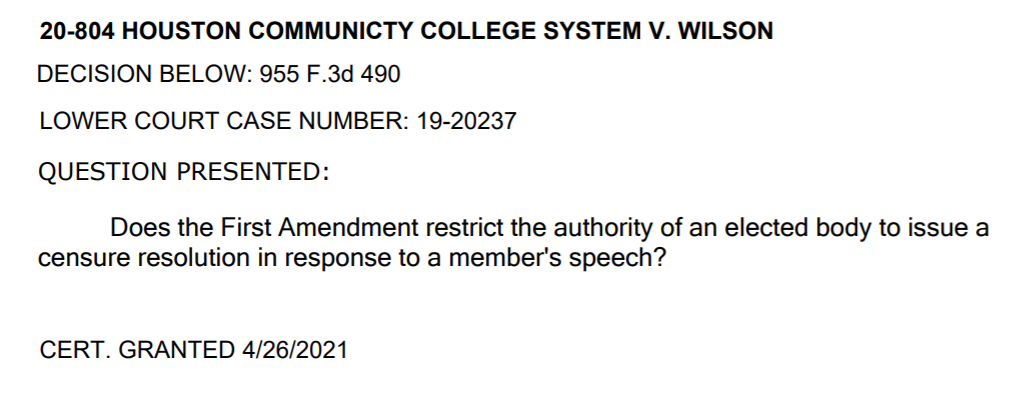 (The first episode of the “Coale Mind” podcast considers this case along with the “Cancel Culture” phenomenon.)
(The first episode of the “Coale Mind” podcast considers this case along with the “Cancel Culture” phenomenon.)
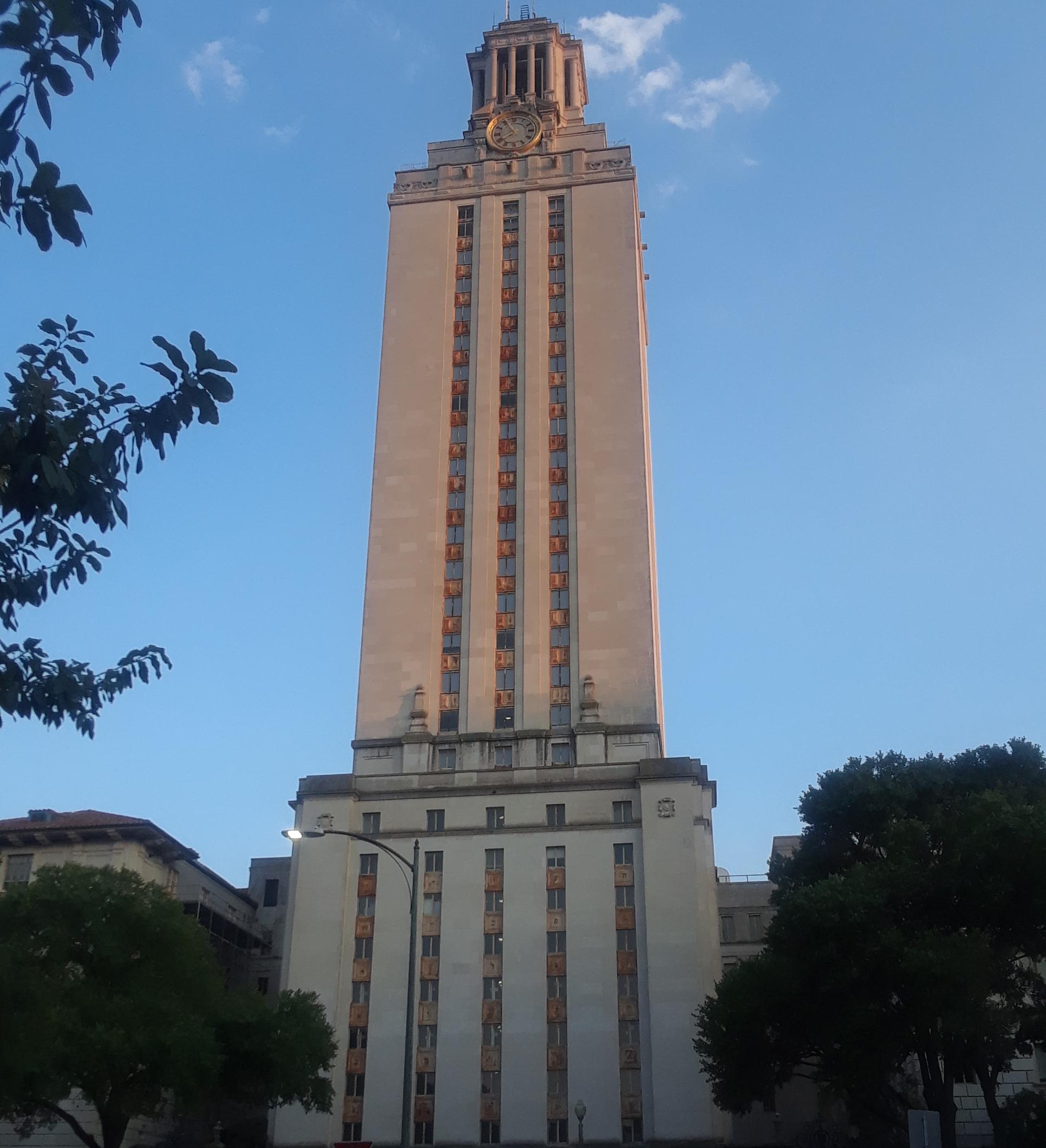 The University of Texas’s rules about campus speech did not fare well in Speech First, Inc. v. Fenves, in which the Fifth Circuit found that a preliminary-injunction action could proceed. The Court found that the case was not moot and stated a strong claim on the merits: “Of course, not every utterance is worth protecting under the First Amendment. In our current national condition, however, in which ‘institutional leaders, in a spirit of panicked damage control, are delivering hasty and disproportionate punishment instead of considered reforms,’ courts must be especially vigilant against assaults on speech in the Constitution’s care. Otherwise, the people may not be free to generate, debate, and discuss both general and specific ideas, hopes, and experiences,’ to ‘transmit their resulting views and conclusions to their elected representatives,’ ‘to influence the public policy enacted by elected representatives,’ and thereby to realize the political and human common good.” No. 19-50529 (revised Oct. 30, 2020) (footnotes omitted).
The University of Texas’s rules about campus speech did not fare well in Speech First, Inc. v. Fenves, in which the Fifth Circuit found that a preliminary-injunction action could proceed. The Court found that the case was not moot and stated a strong claim on the merits: “Of course, not every utterance is worth protecting under the First Amendment. In our current national condition, however, in which ‘institutional leaders, in a spirit of panicked damage control, are delivering hasty and disproportionate punishment instead of considered reforms,’ courts must be especially vigilant against assaults on speech in the Constitution’s care. Otherwise, the people may not be free to generate, debate, and discuss both general and specific ideas, hopes, and experiences,’ to ‘transmit their resulting views and conclusions to their elected representatives,’ ‘to influence the public policy enacted by elected representatives,’ and thereby to realize the political and human common good.” No. 19-50529 (revised Oct. 30, 2020) (footnotes omitted).
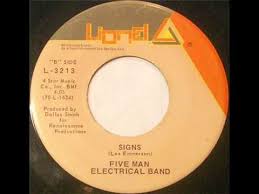 In 1971, the Five Man Electrical Band decried an overabundance of signs, complaining that they were “[b]locking out the scenery, breakin’ my mind.” Similarly, in recent years, the City of Austin grew weary of the many highway billboards in Central Texas. It enacted an ordinance that stopped a large number of them from being updated to a new, digital format, so long as the sign involved “off-premises” business activity. The Fifth Circuit found that the ordinance was unconstitutional in Reagan National Advertising of Austin v. City of Austin, No. 19-50354 (Aug. 25, 2020) (applying Reed v. Town of Gilbert, U.S. 155 (2015)).
In 1971, the Five Man Electrical Band decried an overabundance of signs, complaining that they were “[b]locking out the scenery, breakin’ my mind.” Similarly, in recent years, the City of Austin grew weary of the many highway billboards in Central Texas. It enacted an ordinance that stopped a large number of them from being updated to a new, digital format, so long as the sign involved “off-premises” business activity. The Fifth Circuit found that the ordinance was unconstitutional in Reagan National Advertising of Austin v. City of Austin, No. 19-50354 (Aug. 25, 2020) (applying Reed v. Town of Gilbert, U.S. 155 (2015)).
The specific question was whether the regulation’s limit to “off-premises” businesses was a restriction on content, or one on time, place, or manner, under the framework established by the Supreme Court in Reed. The Court focused on a series of challenging hypotheticals it has posed to the City’s counsel at oral argument, including, inter alia:
• Could Barbara and Tom maintain a digital sign in their yard that says “We love hamburgers” that contained the logo and address to a Whataburger location two miles away?
 • Could Sarah place a digital sign in her yard that said “Vote for Kathy” if Kathy did not live at Sarah’s house?
• Could Sarah place a digital sign in her yard that said “Vote for Kathy” if Kathy did not live at Sarah’s house?
• How could one determine whether a digital bilboard that said “God Loves You” is on-premises or off-premises?
Finding these hypotheticals as challenging as the City’s counsel did, the Court concluded that the regulation forced a consideration of content to determine its applicability, making it a content restriction under Reed.
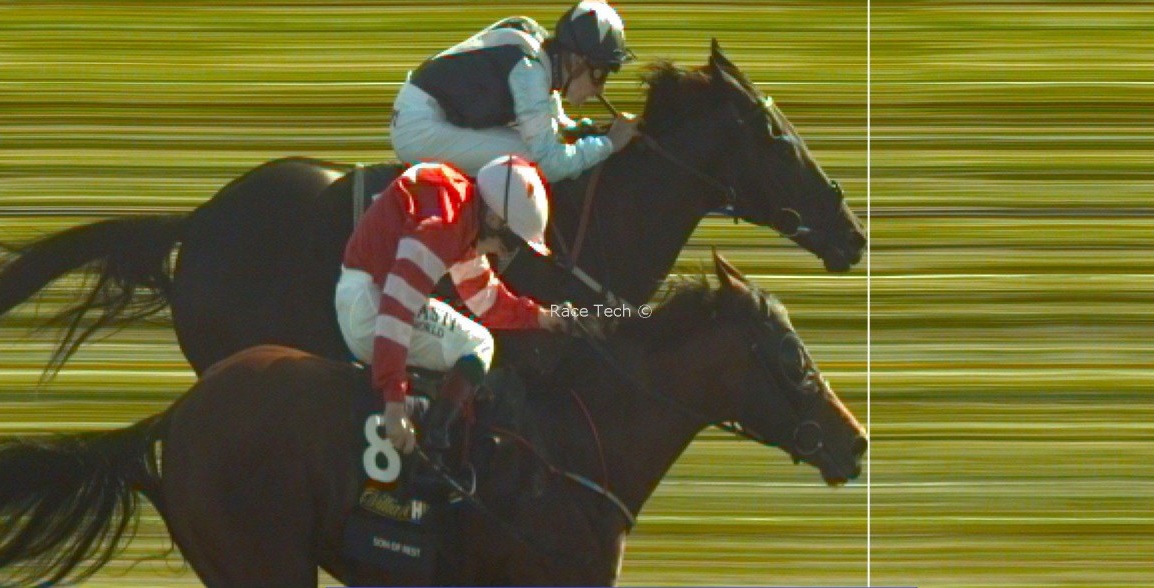 Wilson, a trustee of Houston’s community-college system, alleged that his censure by the board was done in retaliation for his exercise of First Amendment rights. A panel found that he had stated a claim that was sufficient to survive a Rule 12 challenge:
Wilson, a trustee of Houston’s community-college system, alleged that his censure by the board was done in retaliation for his exercise of First Amendment rights. A panel found that he had stated a claim that was sufficient to survive a Rule 12 challenge:
The above [Circuit] precedent establishes that a reprimand against an elected official for speech addressing a matter of public concern is an actionable First Amendment claim under § 1983. Here, the Board’s censure of Wilson specifically noted it was punishing him for “criticizing other Board members for taking positions that differ from his own” concerning the Qatar campus, including robocalls, local press interviews, and a website. The censure also punished Wilson for filing suit alleging the Board was violating its bylaws. As we have previously held, “[R]eporting municipal corruption undoubtedly constitutes speech on a matter of public concern.” Therefore, we hold that Wilson has stated a claim against HCC under § 1983 in alleging that its Board violated his First Amendment right to free speech when it publicly censured him.
Wilson v. Houston Community College System, 955 F.3d 490 (5th Cir. 2020) (footnote omitted). A vote to take the case en banc produced an 8-8 tie, with these votes (Senior Judge Eugene Davis, who wrote the panel opinion, was not part of the en banc vote):
 The COVID-19 crisis has required the courts to deftly juggle conflicting, and important, interests when asked to review emergency regulation. A good summary of such a balancing exercise appears in First Pentecostal Church of Holly Springs v. City of Holly Springs: “Our sole appellate jurisdiction in this case rests upon denial of an injunction implied from the choice by the district court not to rule in an expedited fashion. After briefing, it remains plain that the court is being requested to enjoin a shifting regulatory regime not yet settled as to its regulation and regulatory effect, such as the apparent acceptance by the Church of the Governor’s regulations. That settlement is best made by the district court in the first instance. Lest we in error step upon treasured values of religious freedom and personal liberties we stay our hand and return this case to the district court for decision footed upon a record reflecting current conditions.” No. 20-60399 (May 22, 2020) (emphasis added).
The COVID-19 crisis has required the courts to deftly juggle conflicting, and important, interests when asked to review emergency regulation. A good summary of such a balancing exercise appears in First Pentecostal Church of Holly Springs v. City of Holly Springs: “Our sole appellate jurisdiction in this case rests upon denial of an injunction implied from the choice by the district court not to rule in an expedited fashion. After briefing, it remains plain that the court is being requested to enjoin a shifting regulatory regime not yet settled as to its regulation and regulatory effect, such as the apparent acceptance by the Church of the Governor’s regulations. That settlement is best made by the district court in the first instance. Lest we in error step upon treasured values of religious freedom and personal liberties we stay our hand and return this case to the district court for decision footed upon a record reflecting current conditions.” No. 20-60399 (May 22, 2020) (emphasis added).
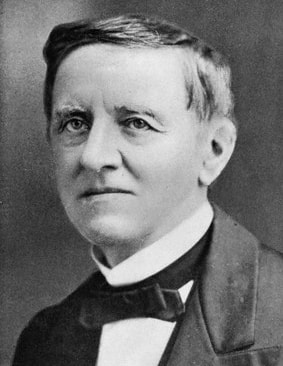 The 2016 Presidential election, one of only five since 1824 when the Electoral College winner lost the popular vote, led to nationwide debate about the College, which in turn led to LULAC v. Abbott – a constitutional challenge to the “Winner Take All” law in Texas that assigns all the state’s electoral votes to the candidate who wins that state’s popular vote. The Fifth Circuit rejected a “one-person, one-vote” challenge to WTA based on a 1969 three-judge opinion that the Supreme Court summarily affirmed, and has not overruled or limited since. It also rejected a challenge based on right-of-association grounds, observing: “[A]ny disadvantage they allege is solely a consequence of their lack of electoral success. But ‘the function of the election process is to winnow out and finally reject all but the chosen candidates.'” No. 19-50214 (Feb. 26, 2020) (citations omitted). (Above, the unfortunate Samuel Tilden, the only Presidential candidate in history to lose despite receiving an outright majority – not just a plurality – of the popular vote).
The 2016 Presidential election, one of only five since 1824 when the Electoral College winner lost the popular vote, led to nationwide debate about the College, which in turn led to LULAC v. Abbott – a constitutional challenge to the “Winner Take All” law in Texas that assigns all the state’s electoral votes to the candidate who wins that state’s popular vote. The Fifth Circuit rejected a “one-person, one-vote” challenge to WTA based on a 1969 three-judge opinion that the Supreme Court summarily affirmed, and has not overruled or limited since. It also rejected a challenge based on right-of-association grounds, observing: “[A]ny disadvantage they allege is solely a consequence of their lack of electoral success. But ‘the function of the election process is to winnow out and finally reject all but the chosen candidates.'” No. 19-50214 (Feb. 26, 2020) (citations omitted). (Above, the unfortunate Samuel Tilden, the only Presidential candidate in history to lose despite receiving an outright majority – not just a plurality – of the popular vote).
 In Vizaline, LLC v. Tracy, the Fifth Circuit formally implemented NIFLA v. Becerra, 138 S.Ct. 2361 (2018), in the context of Mississippi’s licensing of surveyors: “The Supreme Court has recently disavowed the notion that occupational licensing regulations are exempt from First Amendment scrutiny. In overturning the “professional speech” doctrine deployed by some circuits, including ours, the Court rejected any theory of the First Amendment that ‘gives the States unfettered power to reduce a group’s First Amendment rights by simply imposing a licensing requirement.’ The district court’s ruling in this case—that Mississippi’s licensing requirements for surveyors do not trigger any First Amendment scrutiny—was inconsistent with NIFLA. We therefore reverse and remand for further proceedings.” No. 19-60053 (Feb. 14, 2020) (citations omitted, emphasis added).
In Vizaline, LLC v. Tracy, the Fifth Circuit formally implemented NIFLA v. Becerra, 138 S.Ct. 2361 (2018), in the context of Mississippi’s licensing of surveyors: “The Supreme Court has recently disavowed the notion that occupational licensing regulations are exempt from First Amendment scrutiny. In overturning the “professional speech” doctrine deployed by some circuits, including ours, the Court rejected any theory of the First Amendment that ‘gives the States unfettered power to reduce a group’s First Amendment rights by simply imposing a licensing requirement.’ The district court’s ruling in this case—that Mississippi’s licensing requirements for surveyors do not trigger any First Amendment scrutiny—was inconsistent with NIFLA. We therefore reverse and remand for further proceedings.” No. 19-60053 (Feb. 14, 2020) (citations omitted, emphasis added).
 Warren claimed that an internal investigation report for her employer, Fannie Mae, was defamatory. The Fifth Circuit affirmed summary judgment for the defense, holding, inter alia, that the report was shielded from liability by a qualified privilege. As to Warren’s argument that the report was made with actual malice, her evidence of “things that the investigator left out of the report” did not meet the demanding standard of showing “that the report was false or recklessly disregarded the truth.” And as to her argument about excessive distribution of the report, she “offer[ed] no evidence, other than her own speculation, that any person without a valid interest received the report or was made aware of its findings.” Warren v. Fannie Mae, No. 18-11211 (Aug. 2, 2019).
Warren claimed that an internal investigation report for her employer, Fannie Mae, was defamatory. The Fifth Circuit affirmed summary judgment for the defense, holding, inter alia, that the report was shielded from liability by a qualified privilege. As to Warren’s argument that the report was made with actual malice, her evidence of “things that the investigator left out of the report” did not meet the demanding standard of showing “that the report was false or recklessly disregarded the truth.” And as to her argument about excessive distribution of the report, she “offer[ed] no evidence, other than her own speculation, that any person without a valid interest received the report or was made aware of its findings.” Warren v. Fannie Mae, No. 18-11211 (Aug. 2, 2019).
 A nonprofit lacked standing to pursue a facial First Amendment challenge to an IRS regulation in Freedom Path, Inc. v. Internal Revenue Service: “Freedom Path’s claimed inability to know what communications will be deemed in pursuit of an exempt function is not an injury arising from the four corners of the Revenue Ruling but quite explicitly from its application beyond the facial terms. Thus, Freedom Path’s claimed chilled-speech injury is not fairly traceable to the text of Revenue Ruling 2004-6, meaning it does not have standing to bring this facial challenge.” No. 18-10092 (Jan. 16, 2019).
A nonprofit lacked standing to pursue a facial First Amendment challenge to an IRS regulation in Freedom Path, Inc. v. Internal Revenue Service: “Freedom Path’s claimed inability to know what communications will be deemed in pursuit of an exempt function is not an injury arising from the four corners of the Revenue Ruling but quite explicitly from its application beyond the facial terms. Thus, Freedom Path’s claimed chilled-speech injury is not fairly traceable to the text of Revenue Ruling 2004-6, meaning it does not have standing to bring this facial challenge.” No. 18-10092 (Jan. 16, 2019).
 Three erotic dancers brought a First Amendment challenge to a Louisiana law that imposed a 21-year age minimum on that line of work. As to overbreadth (i.e., the coverage of the law), the Fifth Circuit found “no suggestion in this record that the legislature was seeking to affect dancers other than those at establishments in which erotic dancing was the norm, or . . . specifically intended to cover those at traditional theater and ballet.” As to vagueness, the Court observed that the dancers “want to wear the bare minimum, but the Constitution does not guarantee them that level of specificity.” Doe v. Landry, No. 17-30292 (Nov. 16, 2018, on rehearing) (emphasis added).
Three erotic dancers brought a First Amendment challenge to a Louisiana law that imposed a 21-year age minimum on that line of work. As to overbreadth (i.e., the coverage of the law), the Fifth Circuit found “no suggestion in this record that the legislature was seeking to affect dancers other than those at establishments in which erotic dancing was the norm, or . . . specifically intended to cover those at traditional theater and ballet.” As to vagueness, the Court observed that the dancers “want to wear the bare minimum, but the Constitution does not guarantee them that level of specificity.” Doe v. Landry, No. 17-30292 (Nov. 16, 2018, on rehearing) (emphasis added).
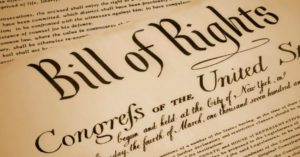 The panel majority in Benson v. Tyson Foods affirmed the denial of a request to speak to jurors after a trial, but observed: “In light of the First Amendment interests at stake here, which [Haeberle v. Texas Int’l Airlines, 739 F.2d 1019 (5th Cir. 1984)] did not appear to fully appreciate, district courts in the future would be wise to consider seriously whether there exists any genuine government interest in preventing attorneys from conversing with consenting jurors—and if so, whether that interest should be specifically articulated, in order to facilitate appellate review and fidelity to the Constitution.” A concurring opinion agreed with the affirmance but would not have relied on the Haeberle opinion, instead preferring an approach that took into account the interests of the movant as a factor – a “step . . . fatal to Benson’s argument,” as “her rights would be unaffected by a decision that the district court abused its discretion in not giving her counsel sufficient justification for denying their request.” No. 17-40161 (May 1, 2018).
The panel majority in Benson v. Tyson Foods affirmed the denial of a request to speak to jurors after a trial, but observed: “In light of the First Amendment interests at stake here, which [Haeberle v. Texas Int’l Airlines, 739 F.2d 1019 (5th Cir. 1984)] did not appear to fully appreciate, district courts in the future would be wise to consider seriously whether there exists any genuine government interest in preventing attorneys from conversing with consenting jurors—and if so, whether that interest should be specifically articulated, in order to facilitate appellate review and fidelity to the Constitution.” A concurring opinion agreed with the affirmance but would not have relied on the Haeberle opinion, instead preferring an approach that took into account the interests of the movant as a factor – a “step . . . fatal to Benson’s argument,” as “her rights would be unaffected by a decision that the district court abused its discretion in not giving her counsel sufficient justification for denying their request.” No. 17-40161 (May 1, 2018).

